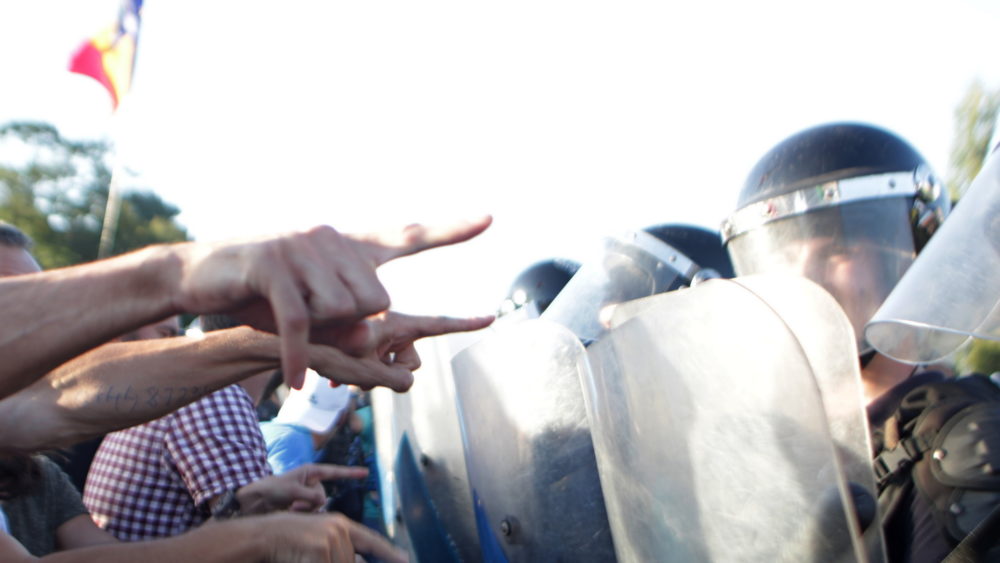Earlier in August, peaceful protesters gathered in Bucharest Piata Victoriei to stand up against corruption, to challenge politicians with a criminal record, and to defend the independence of the judiciary. The spontaneous protest gathered between 80,000 and 90,000 Romanians, many living outside the country. Similar protests took place in big cities like Sibiu, Timisoara, Cluj.
The police, however, quickly initiated violence. In Bucharest, the police used tear gas numerous times, indiscriminately, and fired water cannons and gas grenades to push protesters into nearby streets where they started beating them, despite protesters’ keeping their hands up. Examples include Austrian journalists from ORF and Israeli tourists.
An estimated 450 people, including police, were injured, and the excessive use of tear gas has had lasting effects. Citizens filed almost 200 complaints against the police for abuse of power and abusive behaviour. 17 NGOs filed criminal complaints against the Interior Minister, Carmen Dan, Sebastian Cucos, head of Romanian police and the sheriff of Bucharest, Speranta Cliseru.
Any attack on the rule of law, on the right to protest and on the free press in an EU country, is an attack on democracy for all the EU.
Between 3-5 million Romanians have left their country so far, but if these abuses continue, the number can easily double. With the many challenges Europe is facing now, an unstable Romania can only weaken the EU even further.
In Romania, like in Poland and Hungary, democracy is under threat. A huge part of the media is bought and paid for, while the independence of the judiciary is under attack.
After the failed emergency decree issued in the winter of 2017, which aimed to legalise corruption and abuse of power, the ruling government modified the penal code in the Parliament where they have majority (adopted on 4th of July). Modifications include:
- Abuse of power is partly decriminalised. It is considered legal if the damage is up to the gross minimum wage — 1,900 lei. In addition, it is considered abuse of power if the purpose is to obtain undue material gains for self, husband or relatives up to Grade II, but — exceptionally — not for third parties. The Parliament has removed from the scope of the abuse of service and drafting, issuing or approving the normative acts by the Parliament and the Government
- Decriminalisation of traffic of influence — unless it’s for gaining money or material goods.
- Total decriminalisation of negligence in service.
- Hampering extensive confiscation. Goods transferred by the condemned person towards a member of his/her family can be confiscated only if the person “knew that the purpose of the transfer was avoiding confiscation.”
These changes have ben heavily criticised by the opposition, by representatives of magistrates and civil society organisations.
But in July 2018, Laura Codruta Kovesi, the leading anti-corruption prosecutor, was fired.
Hundreds of thousands of Romanians have signed a petition demanding a law that would ban people indicted for corruption and other offenses from political office.
Fellow Europeans must stand with and support Romanians as they challenge authoritarianism and corruption in their government. DiEM25, as the most progressive example of a transnational political project, must keep the pressure on the Romania government and ensure Romanians know they do not stand alone.
Do you want to be informed of DiEM25's actions? Sign up here










